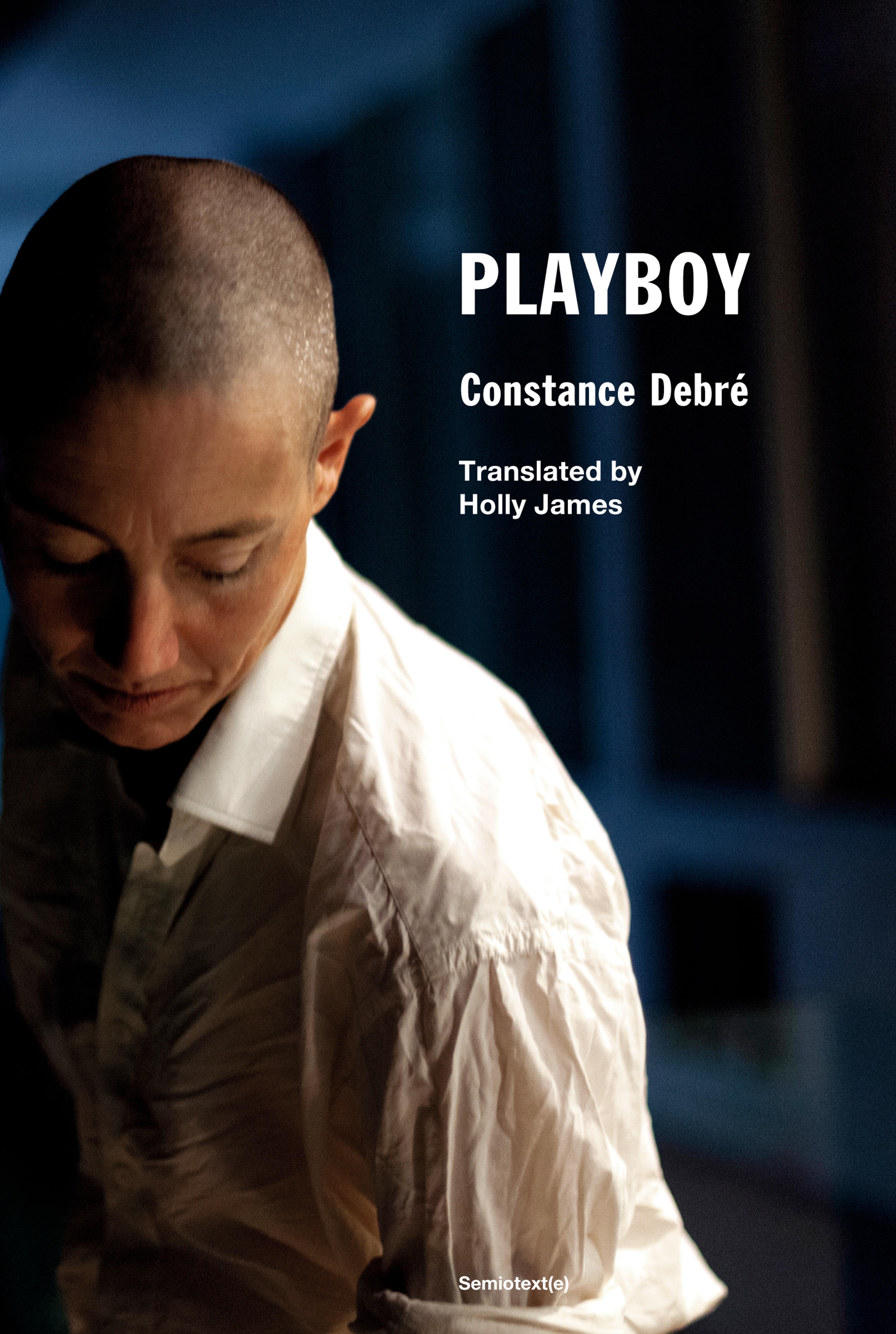She knows that we know that she knows it’ll never be her lot entirely. As a matter of fact, aristocrats cutting their teeth on all the sinking mud planes of the proletariat – lousy credit ratings, social housing, bargain-bin food – are surrounded by abject environments, yet themselves can never lose. It’s downward mobility that’s never really down. Constance Debré’s debut novel, Playboy (2024), narrates the life of a forty-three-year-old woman who leaves family crests, red-soled Loubitons, Rolex 69s, and heterosexuality to join those living on empty. In her wake lie an ex-husband, Laurent; an unnamed, fifteen-year-old son; and the detritus of her career as a lawyer, throwing down the gauntlet on behalf of thieves and murderers. The narrator presents an opening statement in the courthouse of life: “I’m rich, and she’s poor. That’s why I’m going to win.” But it’s not self-important; she’s merely stating the facts.
By age four, she knows she’s a dyke, but anyway, her hands are full with upper-class junkie parents and all the idiotic joys and banalities of privilege. Staccato vignettes and sentences conjure the stock existence and monotonous “toils” of bygone aristocrats hemorrhaging cash, decanted in curt, hilarious one-liners (Debré’s signature). We wanted her to tell us she wasn’t a whore instead of crying, she yawns about a grade-school teacher. The text is direct and convincing, perhaps on account of the author’s own blue blood and former life as a Sorbonne-trained lawyer. You cannot be neutral reading Playboy; every page compels the projection of the reader’s own class, raising to the surface all the percolating bitterness we feel for what we’ve had or haven’t. Guilty as charged.
The narrator dips her toes in queer waters through the insouciant pursuit of Agnès, whose own hetero backstory we’ll never know entirely. Her first score is excruciatingly withholding, the come-ons she instigates nervous, dodging, at arm’s-length. She drinks too much, loves the little things, fails to cough up for flights after the pair miss a plane to Rome, all causes for snobbish annoyance. This says more about the narrator than it does about Agnès: Is this her first exposure to the tribulations of the petty bourgeoisie? Has Agnès taken her sheltered-life virginity? While slipping around pussy on their summer trip to Italy, the lovers watch their horny contortions in a wall mirror. We’re beautiful, Agnès purrs, looking only at herself. Her well-managed life dissolving, the narrator takes up swimming, transforming her body into a bastion of resolve. “I tell myself there are so many things that are possible; I see my own body, new.” “My secret is being selfish,” the narrator testifies. What’s so bad about that?
Fighting social orders and discrimination, her self-involvement willingly concedes that there are still, as ever, profoundly different products in people’s grocery carts. Verdict: Choosing an identity is a privilege for some.
But Agnès could be anyone. It’s the business of the narrator to card-shuffle women fifteen years older, a decade younger, good sex, bad sex, sex for the sake of sex. The carnal language in Playboy – the wet cunts, blowjobs, taut asses – is hardly hot. What passes for fucking are blow-by-blow accounts of unbankable, unsentimental exchanges, occasionally lugubrious – until it’s over. Albertine (aka Albert), a hot, Pre-Raphelite waif who’s just returned from New York, is the modulating factor, mostly because she’s not playing hard to get – a modus operandi the protagonist can get behind. Here, casual consent grows synonymous with “agency,” since it’s easy to think we have power when everyone’s getting what they want.
This much cannot be said for the recidivist low-lives the narrator represents at the stand. Varicose junkies born with literal silver spoons in their mouths and other bottom-feeders skulk the book foreground and background, their plights unworthy of lasting attention. Does she find rapport with the down-and-outs when she’s joined their ranks, now a punk-poor queer experiencing society’s centrifugal prejudices? Weaving in and out of the text are possible contradictions one can tally: living on ten euros a day, but a lawyer? Eating raw veggie patties with tomato sauce? The character doesn’t add up. A spilled dossier of timelines highlights the many selfhoods we contain, keeping track of individual ontology with bullet points, almost in order, but not quite. She gets along famously with discrepancy.
Cover of Constance Debré, Playboy, 2024. Courtesy: Semiotext(e)
Aggressively pursuing an identity outside of tired, bougie uniformity, Debré eschews class and its objections to decide who she is, regardless of who it effects – ending whole relationships via text. As her son and Laurent scramble to deal with the narrator’s disappearing act – lovers, tats, short hair – they completely miss the speculative discipline of birthing a new “I.” To prevent the catastrophe of handing yourself entirely to the text, she throws us a bone with tongue-in-cheek reassurance: Pure-bred aristocratic or mutt-poor, queer or straight, sacrificial or selfish, we’re all sublimely tired and, well, really fucking boring. Less than the sum of our parts. As ever, Debré’s cross examination is to the point. Fighting social orders and discrimination, her self-involvement willingly concedes that there are still, as ever, profoundly different products in people’s grocery carts. Verdict: Choosing an identity is a privilege for some.
Playboy is, if nothing else, a brilliant sting operation, catching us in the act of our own bullshit: “I told myself it was interesting to live through something so banal that it was exactly the kind of experience you should have,” she fibs through Bobo life. And this story is banal. Debré’s clever coup is unlike anything we’ve dared to say, let alone want, but here we are, sitting in the tedious truth that we’re all bored shitless. Or, in the book’s own final, sober words: Nothing life-changing.
___
Constance Debré’s Playboy (2024) is forthcoming in English from Semiotext(e) on 9 April, translated by Holly James.



